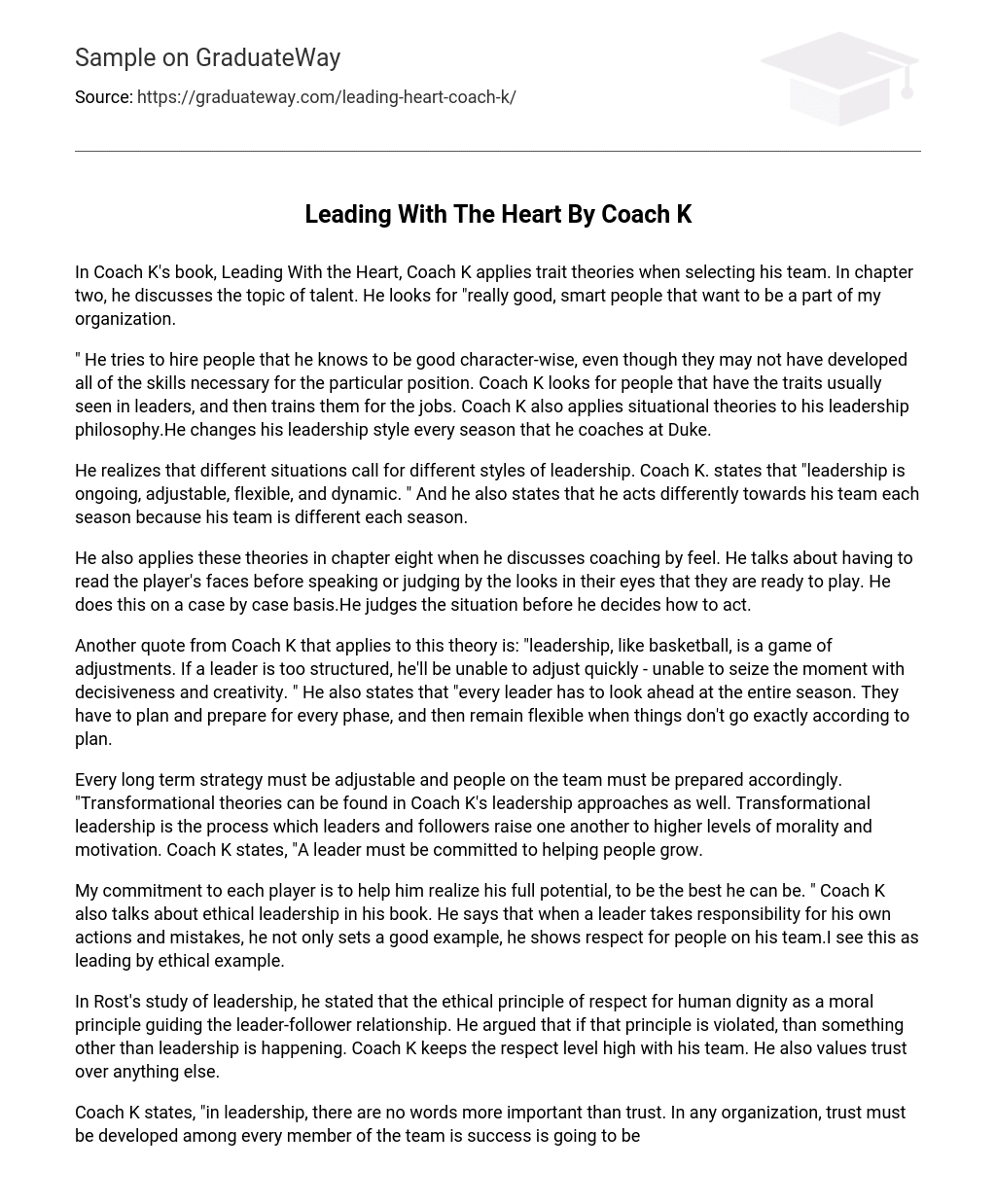Coach K applies trait theories when selecting his team, as mentioned in his book Leading With the Heart. In chapter two, he specifically focuses on talent and seeks individuals who are “really good, smart people” and have a desire to be a part of his organization.
Coach K seeks to employ individuals whom he believes possess good character, regardless of whether they possess all the required skills for the role. He specifically looks for individuals who exhibit typical leadership traits and then trains them accordingly. Moreover, Coach K incorporates situational theories into his leadership philosophy. He adapts his leadership style each season he coaches at Duke.
Coach K. understands that various situations require varying styles of leadership. He believes that leadership should be ongoing, adjustable, flexible, and dynamic. Additionally, he acknowledges that he adopts different approaches towards his team each season as the team composition changes with each new season.
Chapter eight of the book focuses on the application of these theories to coaching by feel. The author highlights the significance of observing players’ facial expressions and gauging their readiness to participate by analyzing their eye contact. This method is employed on a case-by-case basis, as the author evaluates each situation before deciding how to proceed.
Coach K believes that leadership and basketball share the need for adaptability. Being too inflexible as a leader can hinder quick adjustments and hinder opportunities for creative decision-making. Moreover, Coach K stresses the significance of forward thinking and season-long planning in leadership. Nevertheless, it is equally important to maintain flexibility when circumstances deviate from the original plan.
Adaptability is essential for every long-term strategy and its team members must be prepared. Coach K’s leadership approaches demonstrate transformational theories, where leaders and followers inspire each other to attain greater levels of morality and motivation. Coach K highlights the significance of a leader’s commitment to fostering personal growth.
Coach K is dedicated to assisting every player in achieving their maximum potential and being the best they can possibly be. He stresses the importance of ethical leadership and believes that by taking ownership of one’s actions and mistakes, individuals not only set a positive precedent but also demonstrate respect towards their teammates. Demonstrating ethical behavior through leadership is a crucial aspect for Coach K.
According to Rost, leadership is guided by the ethical principle of respecting human dignity. He believes that if this principle is not followed, then it cannot be considered true leadership. Coach K effectively maintains a high level of respect with his team, prioritizing trust above all else.
Coach K emphasizes the significance of trust in leadership, stating that it is crucial for success in any organization. Trust must be developed among every team member.





